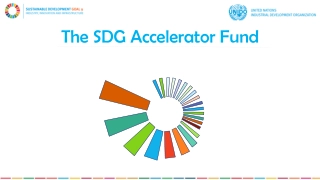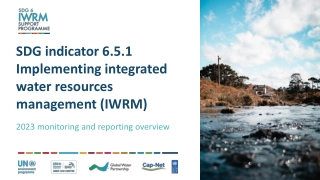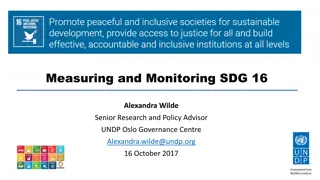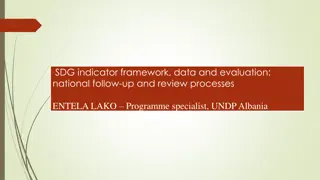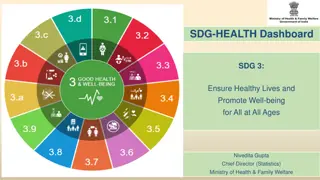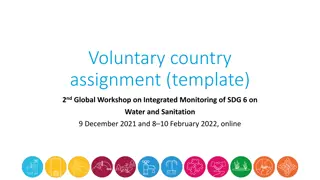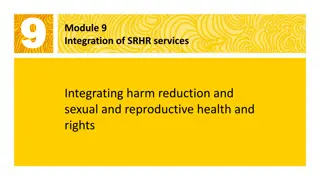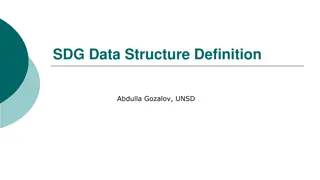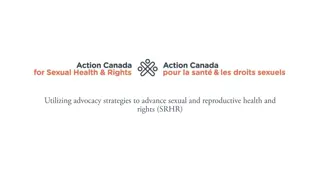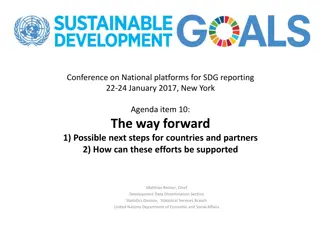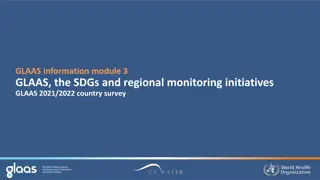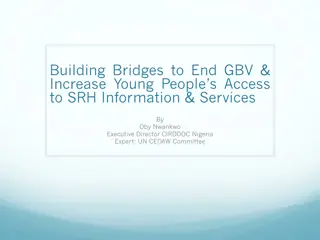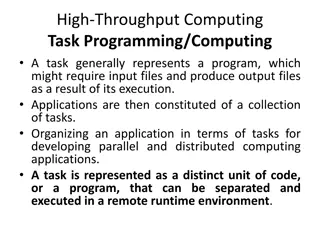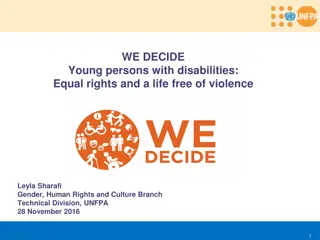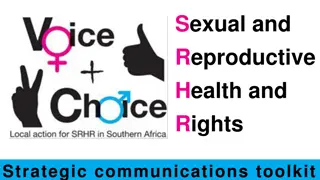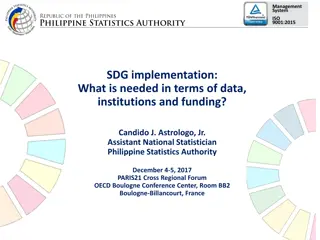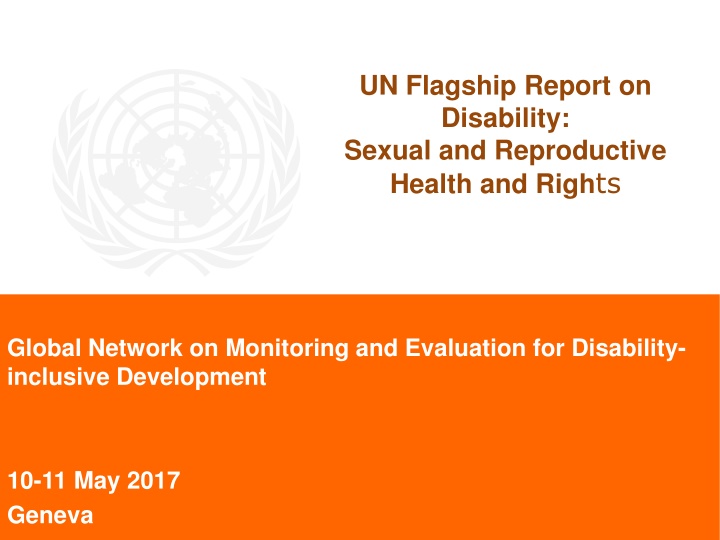
Global Report on Disability: Sexual and Reproductive Health Rights & SDG Goals
Explore the UN Flagship Report on Disability discussing sexual and reproductive health rights, its critical impact on SDG goals 3 and 5, key messages, and international legislation implications. Discover barriers faced by persons with disabilities in accessing SRH services and ways to implement inclusive programs for their well-being.
Download Presentation

Please find below an Image/Link to download the presentation.
The content on the website is provided AS IS for your information and personal use only. It may not be sold, licensed, or shared on other websites without obtaining consent from the author. If you encounter any issues during the download, it is possible that the publisher has removed the file from their server.
You are allowed to download the files provided on this website for personal or commercial use, subject to the condition that they are used lawfully. All files are the property of their respective owners.
The content on the website is provided AS IS for your information and personal use only. It may not be sold, licensed, or shared on other websites without obtaining consent from the author.
E N D
Presentation Transcript
UN Flagship Report on Disability: Sexual and Reproductive Health and Rights Global Network on Monitoring and Evaluation for Disability- inclusive Development 10-11 May 2017 Geneva
Outputs Task team Task Team coordinators: Nora Groce and Leyla Sharafi Task Team members: Cathy Vaughan Maria Alarcos Cieza Ola Abu Alghaib Pamela Nabukhonzo Julia Fleuret Jean-Fran ois Trani Coordinating with Health and Gender Chapters, and also links to cross cutting issues: accessibility, assistance devices, and social groups and vulnerable persons
Outputs Critical to SDG Goals 3 and 5 and others Target 5.6 Ensure universal access to sexual and reproductive health and reproductive rights as agreed in accordance with the Programme of Action of the ICPD and the Beijing Platform for Action and the outcome documents of their review conferences Target 3.7 By 2030 ensure universal access to sexual and reproductive health care services, including for family planning, information and education, and the integration of reproductive health into national strategies and programs Target 5.2 Eliminate all forms of violence against all women and girls in the public and private spheres, including trafficking and sexual and other types of exploitation Target 5.3 Eliminate all harmful practices, such as child, early and forced marriage and female genital mutilation
Outputs Snapshot from outline International legislation for persons with disabilities on this topic, including SDG goals/targets and CRPD articles and other international legislation Articles 23 and 25 of the CRPD: explicit reference to universal access to sexual and reproductive health and rights Linkage to other conventions such as CRC and CEDAW Remarks about national legislation (illustrative country examples) National policies/programmes to implement this SDG and related CRPD provisions for persons with disabilities Recent studies and programmatic interventions from India, Philippines, Sierra Leone, Ecuador, Uganda DHS Module on Disability recent experiences UN Experiences, Status and Trends, Conclusion and Way Forward
Outputs Key messages Perceptions about persons with disabilities not having rights around sexuality and reproduction and not needing SRH services Persons with disabilities, both women and men, face significant barriers in accessing sexual and reproductive health information, education, and services Persons with disabilities, particularly women and girls, face higher risk of gender based violence Recognition that there are challenging issues in relation to SRHR including abortion, coerced and forced sterilization, forced contraception, denial of maternity, parenting and parental rights, denial of legal capacity, autonomy, and decision-making Link to health, gender, poverty chapters even WASH Those promoting SRHR and gender equality must include disability Intersecting forms of discrimination, especially poverty, important to recognize

